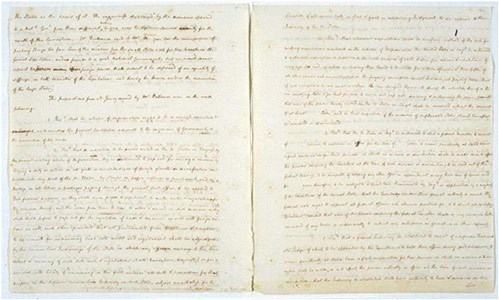

William Paterson introduced a plan now known as the The New Jersey Plan. Mr. Paterson's plan was designed to keep an equal vote in Congress for each state, and that issue would be fought over for the next month. The plan consisted of nine resolutions; as follows:
1. The Articles should be revised to make them "adequate to the exigencies of Government and the preservation of the Union."
2. The Confederation Congress should be authorized to raise money by taxing imports, by a stamp tax, and by postage, with tax evaders tried in state courts with appeal to a Federal judiciary.
3. Requests by Congress to the States for money over and above that raised by Federal taxes should by apportioned among the states based on free population plus 3/5 of slaves. If requisitions were not paid, a method of collecting from the delinquent states should be provided.
4. The Congress should be authorized to elect an executive [plural], to appoint all officers not otherwise provided for and to direct all military operations. The executive be removed on request of a majority of the state executive.
5. There should be a Federal judiciary, appointed by the Executive to hear and determine impeachments of Federal officers, and appeals in other cases.
6. All Acts of Congress made pursuant to the Articles of Confederation should be the supreme law of the land, with state judges bound to uphold them.
7,8,9. Provisions should be made for admitting new states, there should be a uniform rule of naturalization and citizens of each state should be treated equally in state criminal courts.